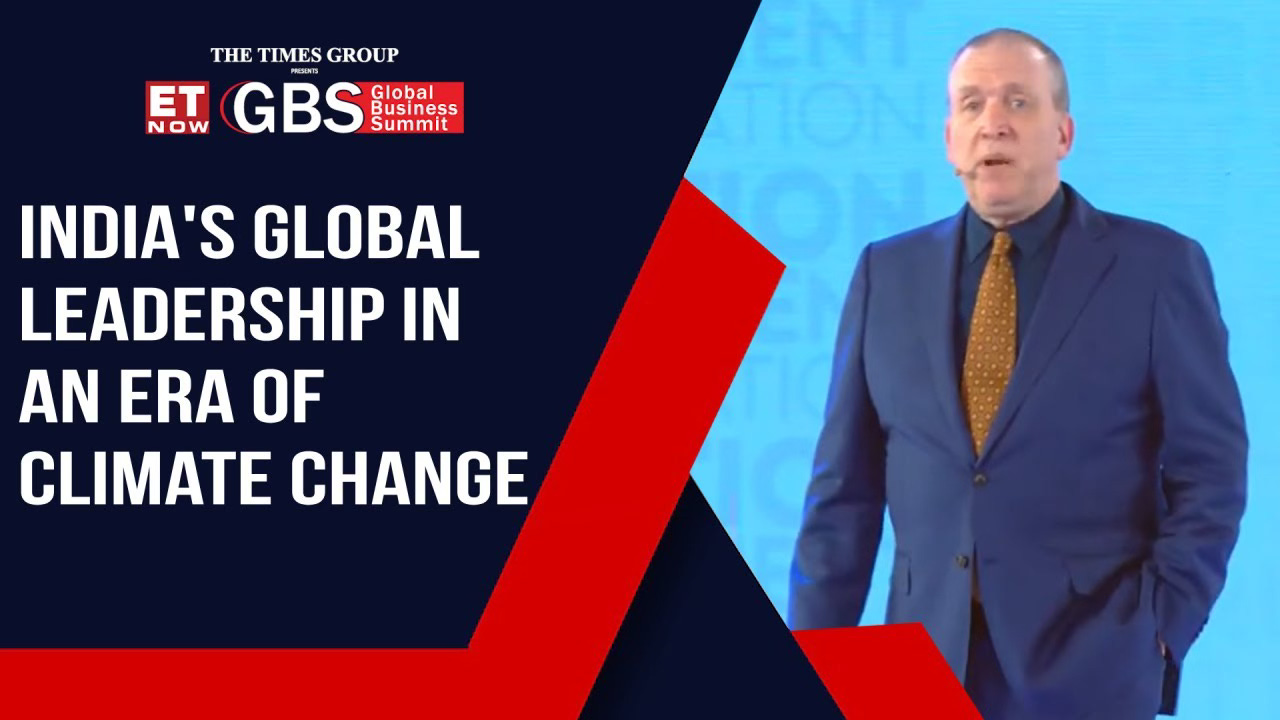The global future is north-south integration
An op-ed I published with The Economic Times of India
Just a lot of stuff to share for the record today in separate newsletters (again!).
Here, the op-ed posted by The Economic Times.
The global future is north-south integration
By Dr Thomas PM Barnett, ET CONTRIBUTORS,Last Updated: Feb 07, 2024, 11:48:00 PM IST

Synopsis:
As climate change reshapes our planet, the traditional global axis shifts. The South faces severe environmental challenges, prompting mass migrations. The North, ironically, gains livable land. Addressing this disparity requires innovative diplomacy to mitigate conflict and foster sustainable solutions. The future demands collective action and inclusive partnerships to navigate the impending geopolitical upheaval.
There has never been a compelling reason for humanity to recognise a North-South world — until now. Climate change, the biggest and most rapid environmental transformation humanity has ever experienced, tilts our planet's strategic axis from West-East to South-North. With every life form on the planet instinctively migrating toward the poles, our world enters a decades-long period of turbulence — a geopolitical reorganisation of the world order.
Our planet's lower latitudes, or what I dub Middle Earth, will suffer the harshest environmental transformation over the next several decades. Stretching 30 degrees north and south of the equator and home to more than half of humanity, much of Middle Earth will later this century regularly endure a climate like today's Saharan Desert, meaning an average temperature approaching 90 degrees Fahrenheit with extremely low rainfall.
The Sahara thus previews the coming geopolitical attrition: sparse populations, weak states, ungoverned spaces, and bad actors galore. Climate change already renders portions of Middle Earth economically unfeasible, contributing to state failure like in Sudan today. A good example are Central America's Northern Triangle states of Guatemala, Honduras, and El Salvador -- the so-called Dry Corridor that already sends waves of food-insecure climate refugees to America's southern border in search of a more sustainable existence.
Come mid-century, three billion or so humans living across Middle Earth will find their lands rendered close-to-unlivable by historical human standards. Like all those migrating species, many of these beleaguered souls will stream northward, where climate change will gift roughly two Australias' worth of livable land to an octet of advanced Arctic economies — America included — in one of history's great ironies. In combination, the South's loss and the North's gain will constitute an unprecedent— and uncompensated — transfer of land-based wealth.
The North can try to geographically contain the South's threatening instabilities. In extremis, we can even go full Escape From New York on those typically far weaker Southern states-like Donald Trump's wall scheme supposedly protected Americans from Mexico's criminals. But unless we are prepared to accept a Mad Max dystopia in these godforsaken regions, we must imagine a more humane and advantageous path.
The United States currently pursues a strategy of limited regret with Middle Earth's slate of fragile states. We send foreign aid. When that is not enough, we send military personnel to train local security forces. And when that fails, we send in Special Forces to kill their bad actors. This narrow approach will not suffice in coming decades.
Today, the European Union has its model of political integration known as accession, while China aggressively markets its model of economic integration known as the Belt and Road Initiative. Meanwhile, Washington largely limits its offerings to military assistance and alliances.
America needs to elevate its game by innovating new forms of state affiliation for connecting South to North. These must broker more viable forms of statehood in the former while modulating the flow of climate refugees to the latter, the goal being to keep the South's most resilient populations in place while accommodating the most vulnerable.
Climate change forces all species — and all nations — to adapt, move, or die.
Let us not forget that America began as 13 fractious colonies and now boasts a membership of 574 sovereign Native American nations, 50 states (two non-contiguous), 14 territories, and one federal district. We know how to evolve and grow our Union; we simply shelved that skillset.
Ultimately, the North must develop new multilateral schemes that enable the pooling of political sovereignty among stronger Northern states and their more vulnerable Southern counterparts — socialising this unprecedented geopolitical risk across a wider community of nations. Doing nothing will yield great violence while exacting great cost.
For decades, the Global South has requested some form of a "new international economic order." What these nations have long heard from the collective North is that we are too busy with our East-West conflicts and rivalries — Ukraine being the latest. The North's superpowers are only beginning to acknowledge the South's profound fears and dread concerning climate change.
That combustible mix of emotions is presently exploited by both China and Russia as they seek to enlist the Global South against the increasingly divided West. Meanwhile, rising India positions itself as the voice of the Global South. These are all strategic moves.
Plenty of regimes — both North and South — will not survive the climate-change crucible slated to grow worse for at least a half century more. The superpowers still standing on the far side of this environmental experiment will anchor North-South political unions that, in their combined demographic and economic strength, capably weathered this geopolitical storm.
This future punishes states pursuing a going-it-alone strategy. The EU successfully adds stars to its flag not by conquest but attraction. These United States should do the same.
(The author is Principal Business Strategist, Throughline Inc. He will be speaking at the ET Now Global Business Summit, 2024, which is being held in New Delhi on February 9-10)




